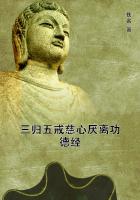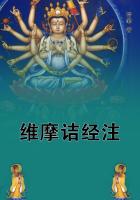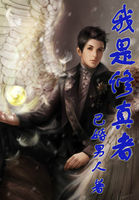For his songs, he would take nothing; they were all that he could do; the proposed Scotch play, the proposed series of Scotch tales in verse, all had gone to water; and in a fling of pain and disappointment, which is surely noble with the nobility of a viking, he would rather stoop to borrow than to accept money for these last and inadequate efforts of his muse. And this desperate abnegation rises at times near to the height of madness; as when he pretended that he had not written, but only found and published, his immortal AULD LANG SYNE. In the same spirit he became more scrupulous as an artist; he was doing so little, he would fain do that little well; and about two months before his death, he asked Thomson to send back all his manuscripts for revisal, saying that he would rather write five songs to his taste than twice that number otherwise. The battle of his life was lost; in forlorn efforts to do well, in desperate submissions to evil, the last years flew by. His temper is dark and explosive, launching epigrams, quarrelling with his friends, jealous of young puppy officers. He tries to be a good father; he boasts himself a libertine. Sick, sad, and jaded, he can refuse no occasion of temporary pleasure, no opportunity to shine; and he who had once refused the invitations of lords and ladies is now whistled to the inn by any curious stranger. His death (July 21, 1796), in his thirty-seventh year, was indeed a kindly dispensation. It is the fashion to say he died of drink; many a man has drunk more and yet lived with reputation, and reached a good age. That drink and debauchery helped to destroy his constitution, and were the means of his unconscious suicide, is doubtless true; but he had failed in life, had lost his power of work, and was already married to the poor, unworthy, patient Jean, before he had shown his inclination to convivial nights, or at least before that inclination had become dangerous either to his health or his self-respect. He had trifled with life, and must pay the penalty. He had chosen to be Don Juan, he had grasped at temporary pleasures, and substantial happiness and solid industry had passed him by. He died of being Robert Burns, and there is no levity in such a statement of the case; for shall we not, one and all, deserve a similar epitaph?
WORKS.
The somewhat cruel necessity which has lain upon me throughout this paper only to touch upon those points in the life of Burns where correction or amplification seemed desirable, leaves me little opportunity to speak of the works which have made his name so famous. Yet, even here, a few observations seem necessary.
At the time when the poet made his appearance and great first success, his work was remarkable in two ways. For, first, in an age when poetry had become abstract and conventional, instead of continuing to deal with shepherds, thunderstorms, and personifications, he dealt with the actual circumstances of his life, however matter-of-fact and sordid these might be. And, second, in a time when English versification was particularly stiff, lame, and feeble, and words were used with ultra-academical timidity, he wrote verses that were easy, racy, graphic, and forcible, and used language with absolute tact and courage as it seemed most fit to give a clear impression. If you take even those English authors whom we know Burns to have most admired and studied, you will see at once that he owed them nothing but a warning. Take Shenstone, for instance, and watch that elegant author as he tries to grapple with the facts of life. He has a description, I remember, of a gentleman engaged in sliding or walking on thin ice, which is a little miracle of incompetence. You see my memory fails me, and I positively cannot recollect whether his hero was sliding or walking; as though a writer should describe a skirmish, and the reader, at the end, be still uncertain whether it were a charge of cavalry or a slow and stubborn advance of foot. There could be no such ambiguity in Burns; his work is at the opposite pole from such indefinite and stammering performances; and a whole lifetime passed in the study of Shenstone would only lead a man further and further from writing the ADDRESS TO A LOUSE. Yet Burns, like most great artists, proceeded from a school and continued a tradition; only the school and tradition were Scotch, and not English. While the English language was becoming daily more pedantic and inflexible, and English letters more colourless and slack, there was another dialect in the sister country, and a different school of poetry tracing its descent, through King James I., from Chaucer. The dialect alone accounts for much; for it was then written colloquially, which kept it fresh and supple; and, although not shaped for heroic flights, it was a direct and vivid medium for all that had to do with social life.
Hence, whenever Scotch poets left their laborious imitations of bad English verses, and fell back on their own dialect, their style would kindle, and they would write of their convivial and somewhat gross existences with pith and point.
In Ramsay, and far more in the poor lad Fergusson, there was mettle, humour, literary courage, and a power of saying what they wished to say definitely and brightly, which in the latter case should have justified great anticipations. Had Burns died at the same age as Fergusson, he would have left us literally nothing worth remark. To Ramsay and to Fergusson, then, he was indebted in a very uncommon degree, not only following their tradition and using their measures, but directly and avowedly imitating their pieces. The same tendency to borrow a hint, to work on some one else's foundation, is notable in Burns from first to last, in the period of song-writing as well as in that of the early poems; and strikes one oddly in a man of such deep originality, who left so strong a print on all he touched, and whose work is so greatly distinguished by that character of "inevitability" which Wordsworth denied to Goethe.














